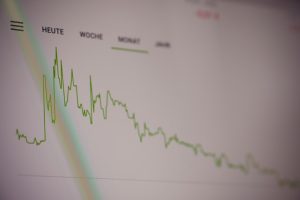Forex trading is the act of buying and selling currencies in order to make a profit. Like any other form of trading, it requires a solid understanding of market trends and price movements. One approach to understanding these trends is through the use of fundamental analysis.
Fundamental analysis is a method of analyzing the value of an asset by examining the underlying economic and financial factors that influence its price. In the forex market, fundamental analysis involves analyzing macroeconomic data, such as gross domestic product (GDP), inflation, employment rates, and interest rates, in order to determine the value of a currency.
By examining these factors, traders can gain insights into the economic health of a country, and make informed decisions about when to buy or sell a particular currency. For example, if a country’s GDP is growing rapidly, this may indicate that its currency will increase in value over time. Similarly, if a country’s inflation rate is high, this may indicate that its currency will decrease in value.
One of the key advantages of fundamental analysis is that it provides traders with a long-term perspective on the market. Unlike technical analysis, which focuses on short-term price movements, fundamental analysis is concerned with the underlying economic and financial factors that drive these movements. By understanding these factors, traders can make more informed decisions about when to enter or exit a trade.
Another advantage of fundamental analysis is that it can help traders identify market trends before they become apparent to other traders. For example, if a trader notices that a country’s GDP is growing rapidly, they may decide to buy that country’s currency before other traders catch on. This can give them a significant advantage in the market, and help them make more profitable trades.
However, it’s important to note that fundamental analysis is not foolproof. Economic and financial factors can be complex and difficult to predict, and unexpected events can cause sudden and dramatic shifts in the market. Additionally, different traders may interpret the same data differently, leading to conflicting predictions about the market’s future direction.
To minimize these risks, traders should always use a combination of fundamental and technical analysis when making trading decisions. By examining both the underlying economic and financial factors that drive the market, as well as the short-term price movements that result from these factors, traders can gain a more comprehensive understanding of the market and make more informed trading decisions.
In conclusion, fundamental analysis is an important tool for traders in the forex market. By examining the underlying economic and financial factors that influence currency values, traders can gain insights into market trends and make more informed trading decisions. However, it’s important to remember that fundamental analysis is not foolproof, and traders should always use a combination of fundamental and technical analysis when making trading decisions.






